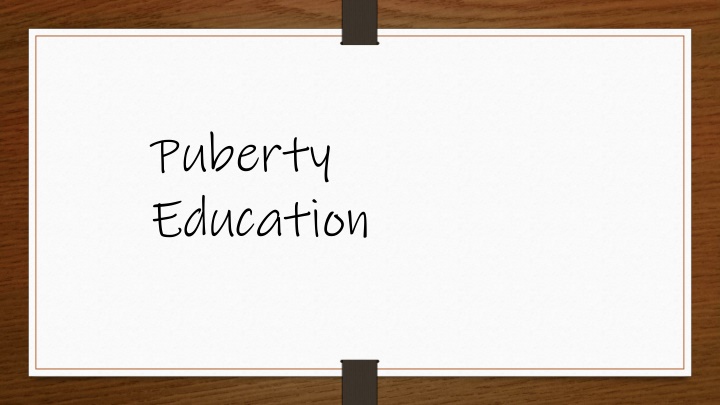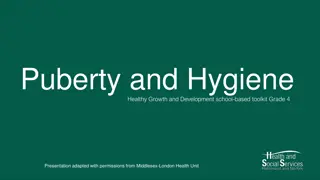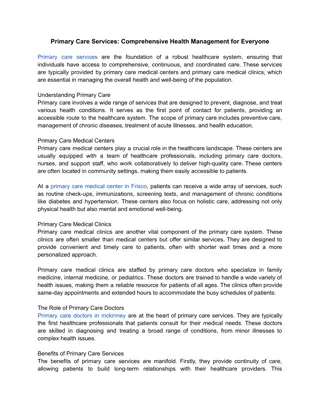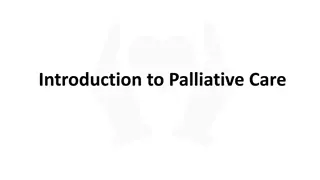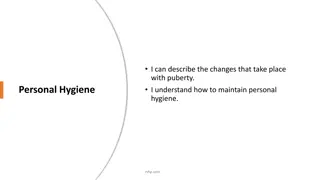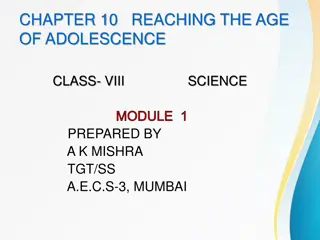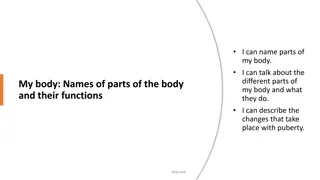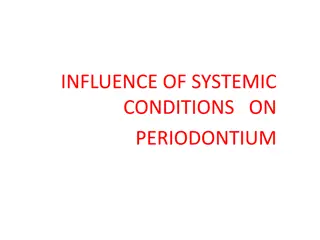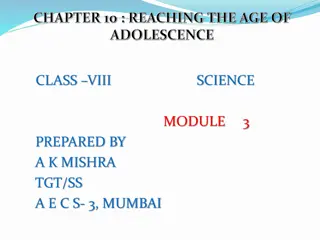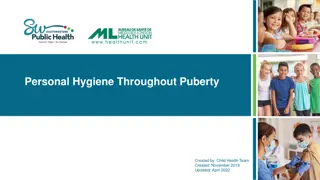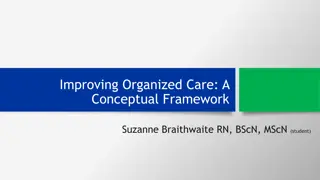Puberty: Changes and Care
Puberty is a time of growth and change, marked by hormonal shifts and physical transformations. This period includes body changes, emotional ups and downs, skin alterations like acne, body hair growth, and potential body odor. Learn about the changes, care tips, and ways to manage these transitions effectively.
Download Presentation

Please find below an Image/Link to download the presentation.
The content on the website is provided AS IS for your information and personal use only. It may not be sold, licensed, or shared on other websites without obtaining consent from the author.If you encounter any issues during the download, it is possible that the publisher has removed the file from their server.
You are allowed to download the files provided on this website for personal or commercial use, subject to the condition that they are used lawfully. All files are the property of their respective owners.
The content on the website is provided AS IS for your information and personal use only. It may not be sold, licensed, or shared on other websites without obtaining consent from the author.
E N D
Presentation Transcript
Puberty Education
Time of growth and change 10 - 17 years of age for boys Glands in the body start making hormones Hormones cause Body changes Ups and downs of feelings
The Hypothalamus & Pituitary Gland These areas of the brain begin all the changes!
Growth spurt Weight gain Facial hair Armpit Hair Body Hair Pubic Hair Emotional changes Voice changes Acne Testicles grow Penis & scrotum grow Ejaculations/Wet Dreams
Body Hair During puberty there are usually changes to body hair that include: arm and leg hair growing and thickening pubic hair growing hair on growing on the chest and face Body hair is completely natural and normal and serves a number of body functions. Some people choose to remove some or all of their body hair in places that is unwanted. Hair can be removed using a number of methods, such as: shaving, waxing, hair removal creams, plucking, trimming, threading and lasering.
Skin Changes, Pimples and Acne Puberty increases the production of oils in the skin which can cause pimples. Some young people going through puberty can get acne. There are a number of treatment options available, so students should seek advice if they find their experiences with acne to be a problem.
Potential Body Odor Many young people going through puberty find they produce more oil and sweat than when they were younger. To prevent body odor, washing and using deodorants, antiperspirants and wearing clean clothes is recommended. There are certain areas of the body that contain more sweat glands than others - under arms, groin, feet. These areas are also often hidden away from the air which allows bacteria to grow more easily. Washing these areas of the body more frequently is required. Exercise and hot weather also increase sweating and the potential for body odor, so washing more often during these times is important!
Bathing and showering Bathing, washing or showering is important on a daily basis to remove dirt, sweat and odor from the skin's surface. Using a cleansing agent/body wash/soap to clean the skin assists with keeping excess skin oils under control. Rinse the skin well from cleansing agents/body wash/soap to prevent irritation before drying the skin. Use clean towels to dry the skin, pay attention to drying skin creases e.g. under arms, feet, between toes and groin areas. Brush, and wash hair regularly with shampoo and a conditioner to keep it clean and oil free.
Oral Hygiene Good oral hygiene practices should be part of everyday life. Brush teeth, gums and tongue twice daily - morning and evening after eating to maintain healthy teeth and mouth. Drink plenty of fresh water daily. Floss teeth regularly to reduce the debris between teeth and gums. Mouth wash may be used to rinse after brushing/flossing teeth. Visit the dentist regularly for check-ups to maintain healthy teeth, gums and mouth.
Eat well-balanced diet Drink plenty of water Get rest and relaxation Exercise regularly Maintain appropriate personal hygiene.
